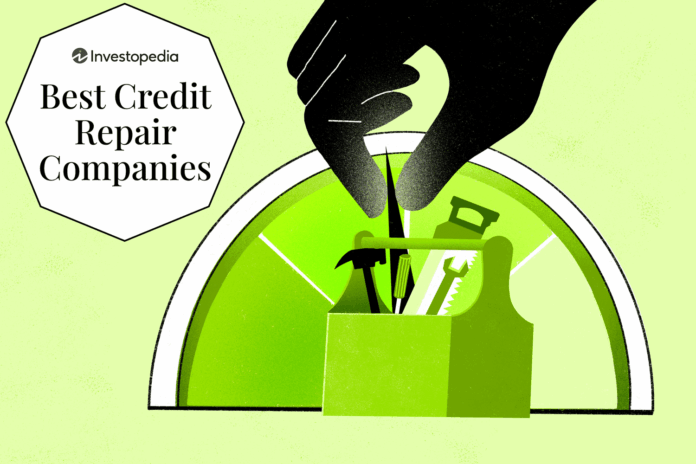Sky Blue Credit has been in business longer than any of the other 16 credit repair companies we researched—it was founded in 1989, so it has over 30 years of experience helping people identify and fix credit problems. It does business in 47 states, giving it a wide range of exposure to various people and credit situations.
You have three plan options, and the fees are decent. The lowest startup fee you might pay is $99, which is better than average. The basic plan costs $79 per month, which is a touch high, but it includes most of what you might want (aside from creditor interventions). Couples’ discounts aren’t uncommon among credit repair companies, but Sky Blue’s discounts are pretty good: You’ll only pay 50% of the normal cost for another subscription if you add a spouse or partner to your plan.
One downside is that Sky Blue will only send up to three credit disputes per month. That’s far fewer than some other companies, which will send unlimited disputes, but Sky Blue claims to have a state-of-the-art dispute system, with customized disputes and re-disputes.
Customer ratings are mixed, though there aren’t many reviews to go by. Google Reviews has the largest amount, and it gives Sky Blue 4.3 stars with about 500 reviews.
Sky Blue Credit is headquartered in Boca Raton, Florida. For more information, see our full Sky Blue Credit Repair review.
Why You Should Trust Us
Investopedia was founded in 1999 and has provided original recommendations for the best credit repair companies since 2020. Investopedia’s research and editorial teams are committed to giving readers the best recommendations for a variety of circumstances. To that end, Investopedia evaluated 17 major credit repair companies across 69 objective metrics, collecting over 1,200 data points, to determine the best companies in several important categories.
Important
Credit repair companies can work to change inaccurate information on your credit reports, but don’t expect them to be able to remove bad marks on your credit if they’re based on correct information. This is possible in some cases, such as pay-for-delete agreements, but there’s no guarantee.
Who Is Credit Repair Good For?
Hiring a credit repair company may be the right move for people who have inaccurate information on their credit reports and need to get it corrected. The inaccurate information could be due to errors made by creditors, unauthorized charges, or even identity theft.
Any individual can do everything done by a credit repair company, but the process can be cumbersome and time-consuming if there are numerous errors, so it might be worth it to have a company work on it for you. It’s a bit like doing your taxes—you can do your taxes yourself, but for many people it makes sense to hire a professional.
Tip
A credit repair company can be a great lifeline if you’re overwhelmed and/or are too busy to fix your credit directly. That said, if your budget is already stretched thin and you can’t afford to hire a credit repair company, you always have the option of filing disputes directly, at no (monetary) cost to yourself.
Common Credit Repair Terms to Understand
If you are considering working with a credit repair company, you should familiarize yourself with these common terms:
Creditor: A creditor is the institution that holds your debt. It’s who you owe money to. Creditors will try to collect on the debt you owe, but they may be willing to accept less than the full amount. This is known as debt settlement, and it can have severe consequences for your credit score.
Credit score: A credit score is a number based on your credit history; it’s one way lenders and other companies measure your creditworthiness. The most common score is the FICO score, which ranges from 300 to 850.
Credit reports/credit history: Your credit reports, or credit history, contains the information used to calculate your credit score. Information in your credit history will include current and previous credit accounts you’ve held, payment histories, bankruptcies, and more.
Unsecured debt: Unlike secured debt, which is tied to physical property, such as a home or a car, unsecured debt isn’t connected to any specific assets a creditor can seize in the event of a default.
Bankruptcy: In extreme cases of identity theft, working with a credit repair company may be a way to avoid bankruptcy, which is a legal process that discharges your debt in the event that you cannot repay it. Credit repair, when done correctly, doesn’t damage your credit, but bankruptcy has severe negative credit consequences.
Debt consolidation: One way to lower your monthly payments, and potentially your interest rates, is a debt consolidation loan. Debt consolidation involves taking out a single loan, preferably with a lower interest rate than what you’re paying on your outstanding debts, and using those funds to pay off your other loans. The goal is to consolidate multiple loans into a single loan with a lower monthly payment than your previous loans combined.
Financial plan: In addition to working with a credit repair company, it’s important to have a plan for your financial health. More than just a budget, a financial plan helps identify financial goals for the short term and the long term and establishes a framework for reaching those goals.
Different FICO Score Versions
In addition to the different types of credit scores, there are also multiple FICO scores currently in use. Some of these are industry-specific scores that are optimized for certain kinds of credit products. Additionally, both the base FICO score as well as its industry-specific counterparts are updated periodically, but there’s no requirement to upgrade to the latest iterations. As such, different versions of each type of FICO score are utilized by different lenders.
FICO score 8 is the most commonly used iteration of the base score, though FICO score 10 and 10 T are the most up-to-date versions. FICO auto scores are used in most auto loan credit evaluations, while many credit card issues will look at one of a prospective borrower’s FICO bankcard scores. Older iterations of the base score are used in the majority of mortgage-related credit evaluations.
Pros & Cons of Credit Repair Companies
Pros
Efficiency
Credit monitoring
Legal assistance
Cons
Expensive
Results take time
Pros Explained
Efficiency: You could contact creditors and credit bureaus and challenge errors on your own, but that takes time and some understanding of how the process works. Credit repair companies take care of the hassle for you.
Credit monitoring: In addition to challenging errors on your credit report, some services will monitor your credit for further problems.
Legal assistance: If you need to send cease-and-desist letters to creditors that are hounding you, many credit repair companies can take care of that.
Cons Explained
Expensive: In addition to monthly fees that can surpass $100, sometimes there are upfront costs to get started.
Results take time: Services aren’t rendered instantly and often involve regular communication with creditors. It can take months to see results—not days or weeks. However, this is typical for DIY credit repair as well, which may take longer than working with a company.
How to Choose a Credit Repair Company
When choosing a credit repair company, it’s essential to do research and consider factors like price and features.
Since some credit repair companies are scams, be wary of companies that make grand claims about improving peoples’ credit scores. According to the Federal Trade Commission (FTC), it’s illegal for credit repair companies to require an upfront payment for credit repair before assisting customers. Additionally, they must provide customers with a written contract, laying out an individual’s legal rights.
People should think about their budgets and the time they want to devote to improving their credit. Credit repair companies charge monthly fees—how much are you willing to pay and for how long? Fees can vary quite a bit, so shop around with our picks above to find a company that suits your needs.
Some companies are more transparent than others about the services they provide, such as working with hard inquiries or late payments. Look for a company that can deal with your specific credit problems.
Lastly, if you’re willing to spend some time and energy on fixing your credit, you might just consider learning about credit repair and filing a dispute yourself.
How to Avoid Credit Repair Scams
Credit repair itself is legal, but seemingly legitimate credit repair companies can actually be bad actors trying to scam you. Getting scammed can cost you a lot of money, and to make matters worse, the actions they require of you can harm your credit or even get you charged with fraud.
According to the FTC, consumers should look out for the following warning signs when dealing with a credit repair company:
The company doesn’t explain your legal rights when giving you information on their services
The company requires payment prior to assisting you (credit repair companies legally cannot charge you until they’ve completed the promised services)
The company requires you to pay using cryptocurrency, wire transfer, or gift cards
The company instructs you not to contact the credit bureaus yourself
The company instructs you to dispute accurate information on your credit report
The company instructs you to put false information on your applications for credit or a loan
The company instructs you to submit a false identity theft report
The company offers to hide your bad credit history or create a new credit identity for you (potentially using stolen Social Security numbers (SSNs))
Frequently Asked Questions
How Long Does Credit Repair Take?
Credit bureaus are generally required to complete an investigation into a specific credit report dispute within 30 days, but the entire credit repair process may take months, especially if you’re required to submit additional information. Some credit repair companies only send a certain number of disputes per month, which can make the process take longer.
Keep in mind that a credit repair company cannot get accurate information removed from your credit report.
How Much Does a Credit Repair Service Cost?
Credit repair companies often charge setup and monthly subscription fees for their services, which may range from around $50 to more than $100.
What Is The Fastest Way to Fix Your Credit Score?
If your credit score has been negatively impacted by inaccurate information on your credit reports and you send a dispute, it typically takes up to 30 days for the credit bureau to investigate the dispute and update your credit profile (it may take longer in some cases). However, if your credit score is low because you’ve failed to make your monthly credit card payments on-time, that negative information will stay on your reports for up to seven years, although the negative effects diminish over time.
In that case, the fastest way to improve your credit score is to avoid making late payments on your debt. You should also consider limiting your new credit applications and trying to keep your credit utilization ratio—or the ratio of credit you use to the total amount of credit you have—lower than 30%.
Can I Fix My Credit Myself For Free?
Yes, you can fix your credit by yourself. Individuals can request free credit reports online to check for any errors or inaccurate information or use credit monitoring services. If you’ve noticed an error, reach out to the credit bureau and the business that supplied the incorrect information. After you’ve filed a dispute, the credit bureau typically has 30 days to investigate it. They must then inform you of the results of the dispute.
What Is a Good FICO Score?
According to myFICO, it considers a credit score of 670-739 to be
Best Credit Repair Companies for October 2025
RELATED ARTICLES



